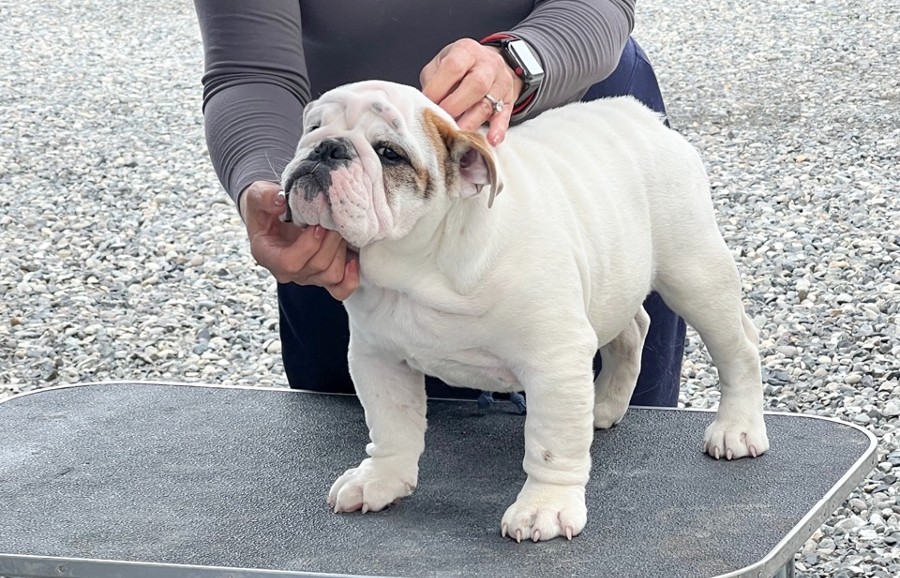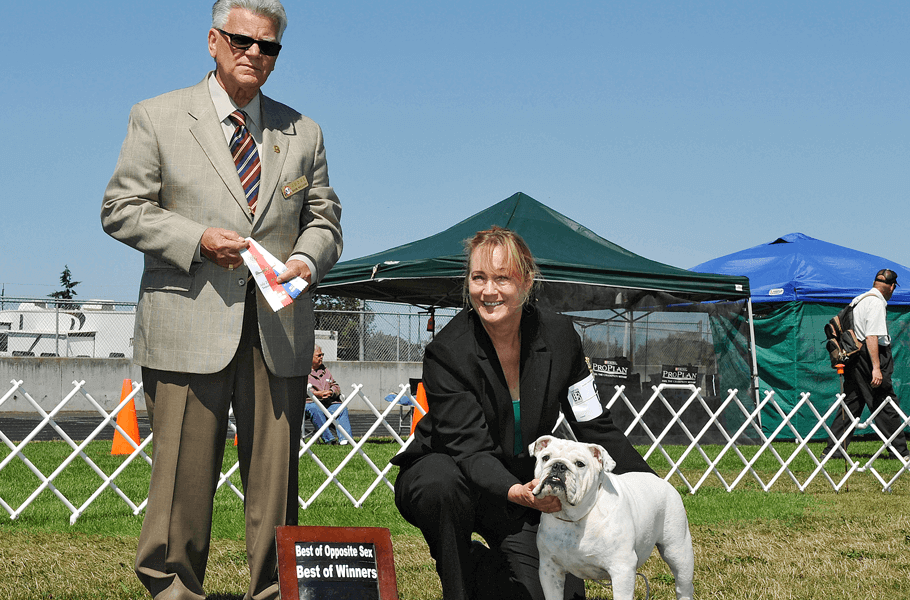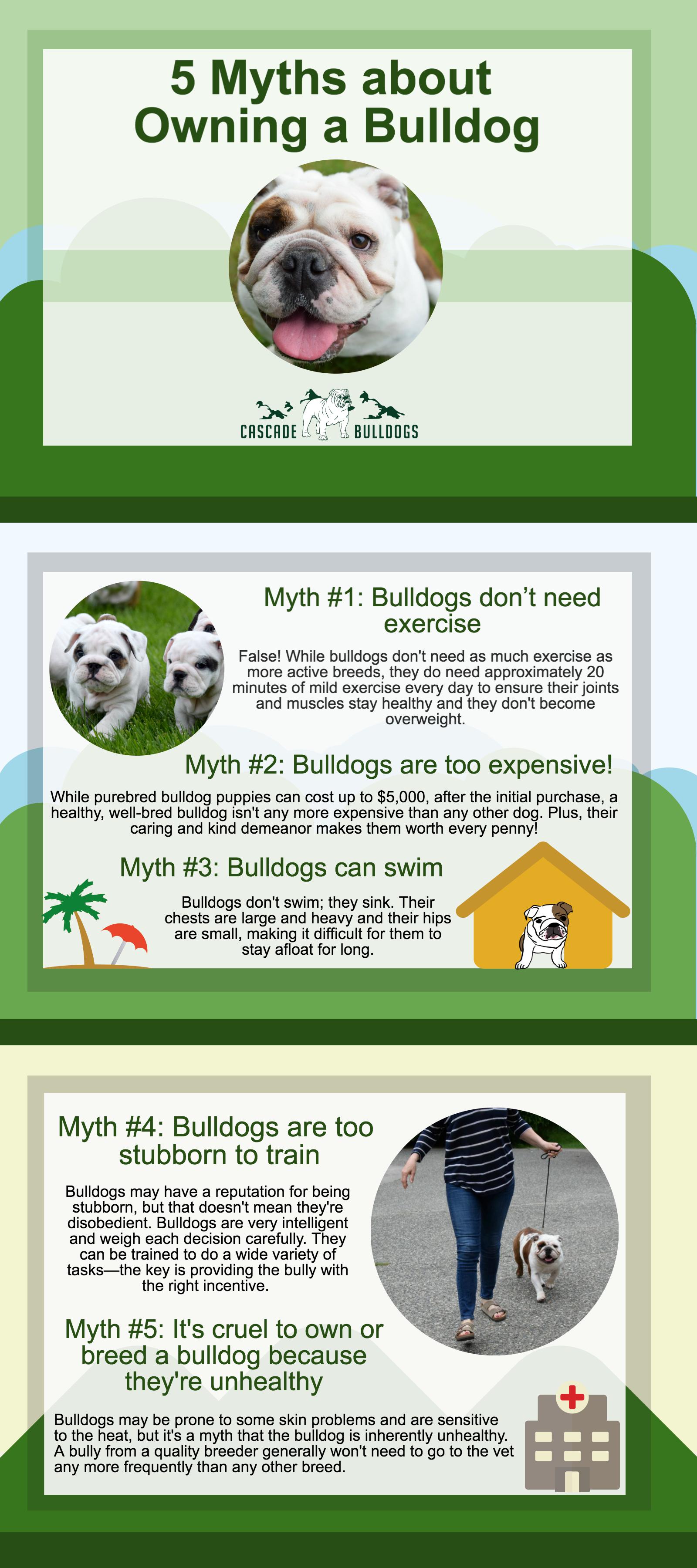5 Myths about Owning a Bulldog
5 Myths about Owning a Bulldog
While bulldogs are a beloved and extremely popular breed, they’re also a frequently a misunderstood breed as well! Perhaps due to their complicated history (they were once bred as bull fighters) or the wealth of inaccurate information on the internet (many bloggers are well-intentioned but undereducated about the facts), bulldog myths are common and widespread.
In an effort to help better educate the public and would-be bulldog owners, we’ve compiled a list of common myths about our favorite wrinkly canine.
It’s true: Well-bred bulldogs are healthy!
One of the myths we hear most frequently is “bulldogs are unhealthy”. People think it’s cruel to breed bulldogs because of their shorter-than-average life-spans and because they require c-sections in order to give birth. But the truth is that you can avoid most—if not all—major bulldog health problems by purchasing a bulldog from a reputable breeder and insuring that the bulldog hails from a solid lineage.
In the video below, a veterinarian spokesperson from the American Kennel Club (AKC) disputes the idea that bulldogs are inherently unhealthy, saying: “Not all bulldogs have breathing problems. There are many healthy bulldogs.”
Why the myths?
1. Bad breeders
Because bulldogs are so in demand, some unethical and dishonest breeders have seen this as an opportunity for a “get rich quick” scheme. They’ve resorted to breeding bulldogs that don’t come from quality genetic lines, resulting in an uptick in the number of unhealthy bulldog puppies being born and sold in the US and elsewhere in the world (for more information on how to discern between the honest breeders and the fakes, read: 9 Important Questions to Ask Your Bulldog Breeder). Because bad breeders are frequently uninformed, they’re largely responsible for adding to the misinformation and perpetuating the myths.
2. A skewed version of reality
The people who are quoted as sources in articles that focus on the bulldog health debate are frequently veterinarian surgeons. As the AKC explains in the video above, these veterinarian surgeons opinions are often colored by their experiences and don’t paint an accurate picture of reality. For the most part, surgeons treat bulldogs who are experiencing major health problems because healthy bulldogs generally don’t require surgery. While it’s only natural that these veterinarians would develop a bias, it’s important that the public doesn’t mistake fact for opinion.
3. Bulldogs are popular! Maybe even TOO popular!
Bulldogs are the 4th most popular dog breed in the US. Because they’re in fashion at the moment, numerous bulldog websites, documentaries and magazine articles have surfaced in recent years in order to meet the demand for education by would-be bully owners. Some of the information that is being shared is accurate, but much of it is not. Unfortunately, one of the side effects of fame is the spread of misinformation.
Want to learn more? Read our bulldog care page for more information about how to keep your bulldog healthy.











